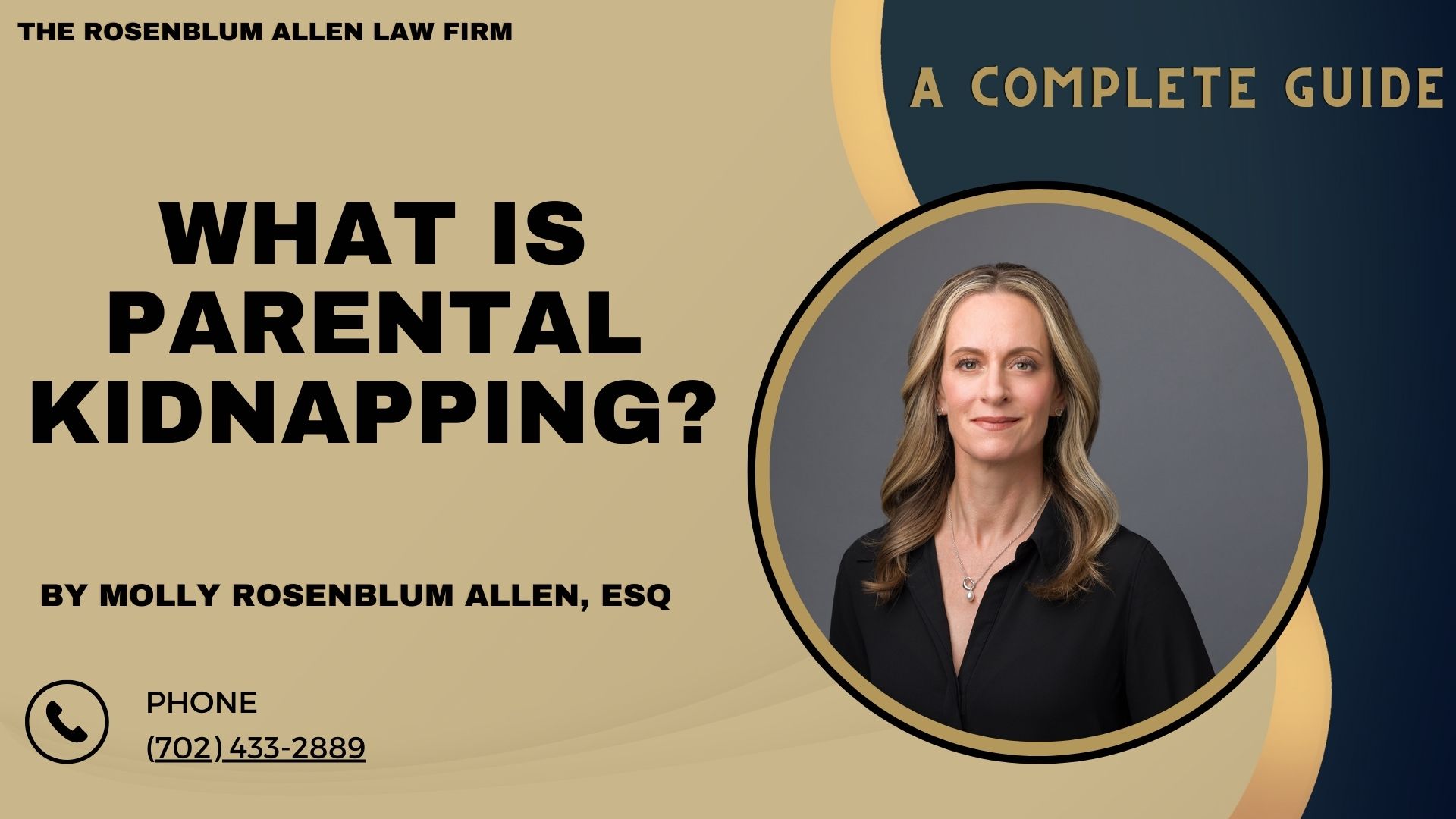Parental kidnapping sounds like a contradiction. How can a parent “kidnap” their child? Yet, this severe issue can upend lives, causing legal battles and emotional turmoil. This guide will clarify parental kidnapping, its legal implications, and its effects.
Consider a child caught in a legal and emotional storm due to parental kidnapping. It’s more than a parent taking a child. It’s about legal rights, the child’s upheaval, and long legal fights. Understanding parental kidnapping is vital to preventing it and protecting the child’s well-being.
 Defining Parental Kidnapping
Defining Parental Kidnapping
Legal Definition
Federal Laws
The Uniform Child Custody Jurisdiction and Enforcement Act (UCCJEA) Aims to clear up custody disputes across states.
The Parental Kidnapping Prevention Act (PKPA) Ensures respect for custody decisions nationwide, preventing interstate parental kidnapping.
State Laws
Laws about this vary by state. But, they usually define parental kidnapping as taking, hiding, or keeping a child against another parent or guardian’s rights.
Differences Between Parental Kidnapping and Custodial Interference
Legal Distinctions: Parental kidnapping usually means taking a child to obstruct another parent’s rights permanently. Custodial interference might be temporary.
Examples: Taking a child to another state without permission could be kidnapping. Returning a child late from a visit could be interference.

Causes and Motivations Behind Parental Kidnapping
The reasons behind parental kidnapping vary from personal to legal complexities.
Disputes Over Custody and Visitation Rights: High-conflict divorces can lead to drastic actions.
High-Conflict Divorces: These situations often lead to parental kidnapping, especially with abuse allegations.
Allegations of Abuse or Neglect: Concern for the child’s safety can drive a parent to act out of fear.
Desire to Avoid Child Support: Some kidnap to escape financial duties.
Financial Motivations: The burden of child support can push some towards kidnapping.
Legal Consequences for Non-Payment: Fear of legal action for unpaid support can drive desperation.
Psychological Factors:
Fear of Losing a Child: This fear can sometimes override logic.
Desire for Control or Retaliation: Sometimes, kidnapping is motivated by a need to control or hurt the other parent.
Next, we’ll look into parental kidnapping’s effects. We’ll also look at legal solutions and prevention strategies. We aim to raise awareness. We also aim to provide legal readiness to support families in this tough situation.

Impacts of Parental Kidnapping
Parental kidnapping harms the parent-child relationship. Its effects touch every part of a family’s life.
On the Child
The child, often caught in the middle, faces significant emotional and psychological challenges.
Emotional and Psychological Effects
Anxiety and Stress: Sudden change and uncertainty can cause fear.
Long-Term Trauma: The impact can extend into adulthood, affecting trust and relationships.
Impact on Education and Social Life
School performance may drop.
Social connections can weaken, isolating the child from friends and activities they love.
On the Custodial Parent
The left-behind parent faces their own set of trials.
Emotional Distress: The absence of a child can lead to depression and anxiety.
Legal and Financial Struggles: Fighting for the child’s return can be expensive and time-consuming.
On the Kidnapping Parent
The consequences for the parent who takes the child are also severe.
Legal Consequences
Criminal Charges: They may face jail time.
Loss of Custodial Rights: They could lose any legal right to their child.

Legal Remedies and Resources
There are ways to address parental kidnapping. They can be resolved through the law and support systems.
Civil Remedies
Custody Orders and Modifications: Courts can change custody arrangements to protect the child.
Civil Suits for Return of the Child: The custodial parent can sue for the child’s return.
Criminal Penalties
Breaking the law has serious consequences.
State Charges: Each state has its penalties for parental kidnapping.
Federal Charges: Sometimes, the act crosses state lines, triggering federal laws.
International Parental Kidnapping
When a child is taken abroad, the situation becomes more complex.
The Hague Convention on the Civil Aspects of International Child Abduction: This international treaty helps return children taken across borders.
Working with International Authorities: Cooperation between countries is crucial for the child’s return.

Prevention and Protection Strategies
Preventing parental kidnapping is better than trying to resolve it after the fact.
Legal Measures
Custody Agreements and Orders: Clear legal arrangements can prevent misunderstandings.
Passport Alerts and Travel Restrictions: They can stop a parent from leaving the country with the child.
Educational Programs
Awareness and understanding are powerful tools.
Awareness for Parents: Knowing the signs can help prevent kidnapping.
Training for Law Enforcement: Officers equipped with knowledge can act swiftly.
Support Services
Families don’t have to navigate this challenge alone.
Counseling and Support Groups: Emotional support is vital.
Legal Assistance and Advocacy: Professional guidance can navigate the legal maze.
As we’ve seen, the effects of parental kidnapping are far-reaching, impacting everyone involved. But, families can find ways to resolve and heal through law, help, and prevention.

Breaking It All Down
Parental kidnapping is a complex issue. It goes far beyond just taking a child from their home. It leaves deep emotional scars. It starts long legal battles and disrupts the lives of all involved. But, understanding parental kidnapping is key. This includes its causes, impacts, and the legal framework. It helps parents, guardians, and the community. It helps them prevent these situations and support affected families.
Awareness and preparedness are essential. Families can navigate these tough waters by spotting the warning signs. They can also understand the legal protections. They also know where to find support. Laws, programs, and services are critical. They prevent parental kidnapping and help those affected recover.
The goal is to protect children. It is to ensure their well-being and rights. They should grow up in a safe and nurturing place. The journey through parental kidnapping is hard. But, with the right knowledge and resources, you can heal and be strong. Remember, support is available, and you’re not alone in this.

Frequently Asked Questions
What should I do immediately if I suspect the other parent has taken my child?
Contact law enforcement promptly to report the situation and provide all necessary information about your child and the other parent. It’s also advisable to reach out to a family lawyer who can guide you through your legal options.
Can a parent face charges of parental kidnapping even with joint custody?
Yes, a parent can be charged with parental kidnapping regardless of custody arrangements if they violate the custody agreement by taking the child without the other parent’s consent or fail to return the child as agreed upon.
How can I prevent international abduction of my child by their other parent?
Ensure your child’s passport is secure and consider obtaining a court order to prevent the other parent from obtaining a new passport for the child. Familiarize yourself with the Hague Convention rules and work with your attorney to establish legal protections.
What are some warning signs of potential parental kidnapping?
Signs may include threats from the other parent to take the child, sudden requests for the child’s documents like birth certificates or passports, making plans to move or travel without specifying a return date, or significant behavioral changes such as withdrawing money or quitting a job.
What support resources are available for parents dealing with the aftermath of parental kidnapping?
Several organizations offer support, including counseling services for both parents and children, legal assistance, and support groups for families affected by parental kidnapping. The National Center for Missing & Exploited Children also provides valuable resources and assistance in cases of child abduction.
How can I legally safeguard my child from parental kidnapping?
Collaborate with a family law attorney to establish clear custody arrangements and document them legally. Consider incorporating provisions in the custody order regarding travel and relocation, and stay informed about legal measures such as passport alerts to prevent unauthorized travel.
What role do schools and childcare providers play in preventing parental kidnapping?
Schools and childcare providers play a vital role in ensuring child safety by being informed about custody arrangements, receiving legal documentation such as custody orders, and implementing safety protocols to release children only to authorized individuals.
Can a parent who has kidnapped their child regain custody or visitation rights in the future?
Possibly, depending on the circumstances and laws of the jurisdiction. The court will assess the child’s best interests, reasons for the kidnapping, and any potential risk posed by the parent. Compliance with court orders and efforts towards rehabilitation may influence the court’s decision.
What is the significance of international law in cases of parental kidnapping across borders?
International law, particularly the Hague Convention on the Civil Aspects of International Child Abduction, provides a legal framework for seeking the prompt return of abducted children from other countries. It aims to ensure the child’s rights and prompt reunification with their custodial parent.

Additional Resources for You
As you navigate through the complexities of military spousal support or any family law matters, it’s essential to have access to reliable and comprehensive resources. Our lead attorney, Molly Rosenblum Allen, Esq., has dedicated a significant amount of effort to create a suite of resources designed to assist you in your time of need. Below is a list of these valuable resources, each addressing different aspects of family law and providing guidance and information that may be crucial during these challenging times:
Las Vegas Family Law Attorneys: A thorough guide to understanding family law services offered in Las Vegas, ideal for anyone seeking legal representation or advice in family-related legal matters. Learn More
Family Court Las Vegas: Essential information and guidance for navigating the Family Court system in Las Vegas, offering insights into procedures, expectations, and tips for those going through the court process. Learn More
Common Law Marriage in Nevada: A detailed exploration of common law marriage in Nevada, clarifying misconceptions and providing legal context to help you understand your relationship’s legal standing. Learn More
Name Change Las Vegas: Guidance on the legal process for changing your name in Las Vegas, including necessary steps, required documentation, and how to navigate the process smoothly. Learn More
Nevada Power of Attorney: Information on establishing a Power of Attorney in Nevada, covering different types of POAs, their uses, and the legal requirements for creating a valid POA. Learn More
How to File a Motion in Family Court: A step-by-step guide to filing a motion in family court, providing practical advice to help you prepare, submit, and follow up on motions effectively. Learn More
Family Court Mediation: Insights into the mediation process in family court, offering strategies for resolving disputes amicably and understanding the role of mediation in family law cases. Learn More
Unbundled Attorney: Information on unbundled legal services, explaining how you can obtain legal help for specific parts of your case without hiring an attorney for full representation, making legal assistance more accessible and affordable. Learn More
Nevada Adoption: A comprehensive guide to the adoption process in Nevada, covering eligibility, the legal process, and what to expect as you seek to expand your family through adoption. Learn More
Each of these resources has been meticulously prepared by Molly Rosenblum Allen, Esq., with the aim of providing clarity, support, and legal insight to help you through your legal journey. Whether you’re facing a family law issue, considering adoption, or dealing with court procedures, these resources are here to assist you every step of the way.

Outside Resources for You
American Bar Association (ABA) Family Law Section: A premier resource for legal professionals and the public on family law issues. Visit ABA Family Law
National Center for Missing & Exploited Children (NCMEC): A critical resource for issues related to child abduction and exploitation, offering tools and support for families. Visit NCMEC
Child Welfare Information Gateway: Provides a wealth of information on child welfare, including prevention of child abuse and neglect, child support, and family preservation. Visit Child Welfare Information Gateway
International Centre for Missing & Exploited Children (ICMEC): Offers global resources and support for the prevention of child abduction and exploitation. Visit ICMEC
U.S. Department of State – International Parental Child Abduction: Essential information and resources for dealing with international child abduction cases. Visit U.S. Department of State
FindLaw Family Law: An extensive library of articles and resources on family law, covering topics from divorce to child custody and beyond. Visit FindLaw Family Law
National Domestic Violence Hotline: Offers support and resources for individuals experiencing domestic violence, which can sometimes be related to cases of parental kidnapping. Visit National Domestic Violence Hotline

A Special Message from Our Lead Attorney, Molly Rosenblum Allen, Esq

Thank you for taking the time to explore our resources. We understand that dealing with family law issues can be challenging and overwhelming. That’s why we’re here to help guide you through every step of the process. If you have questions or need legal help, please call me, Molly Rosenblum Allen, Esq., and my team at (702) 433-2889. Let’s work together to address your situation and move toward a resolution. We’re ready to support you.



